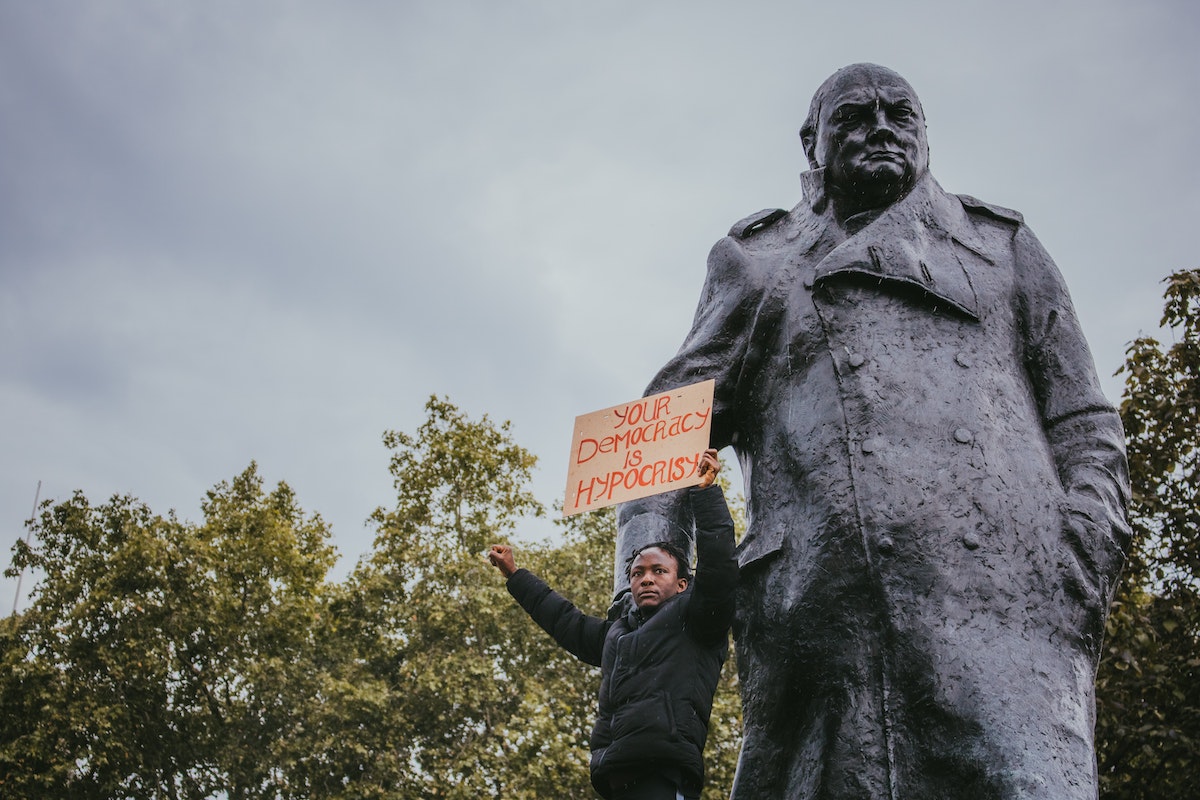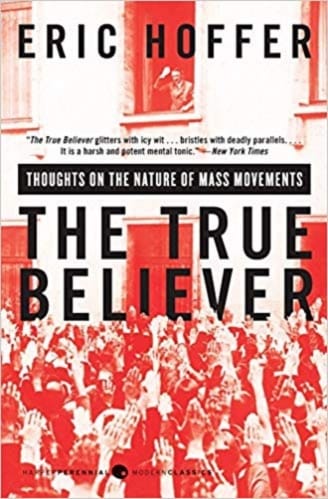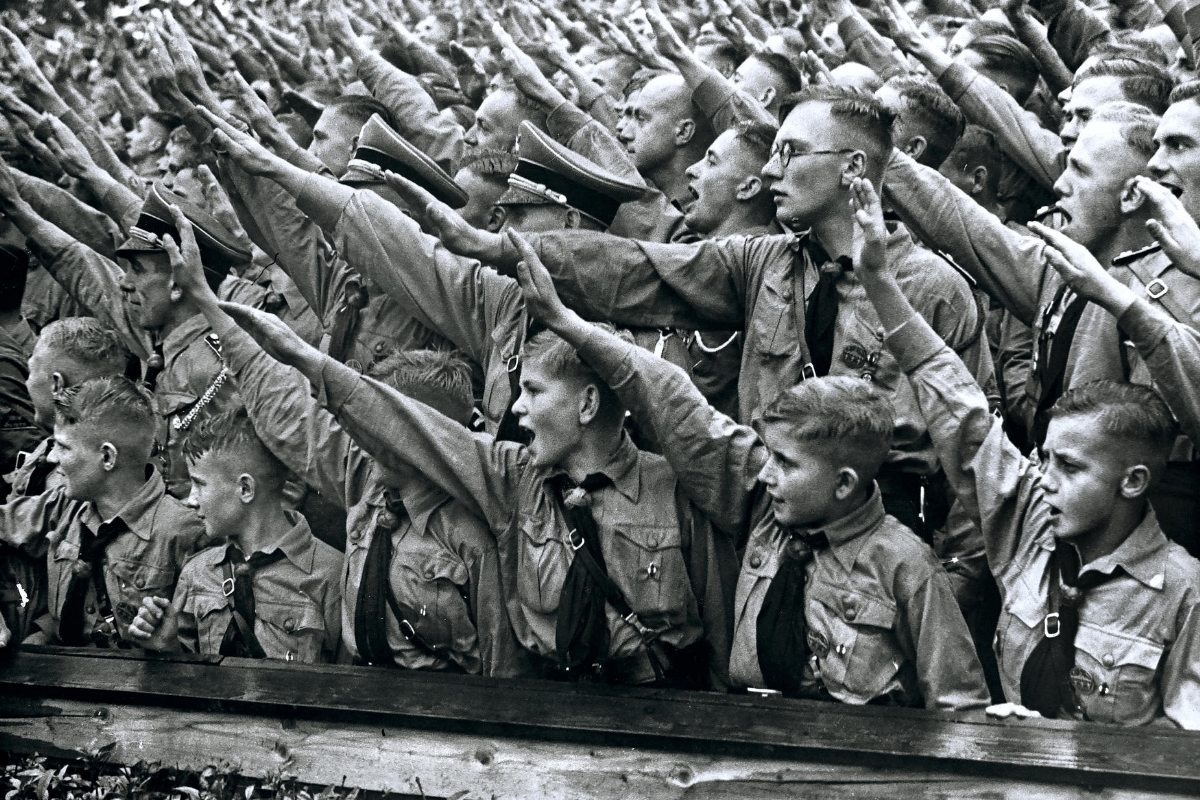Activism
Neo-Totalitarianism and the Erasure of History
And this neo-totalitarianism has learned from the past: It has its inquisitions, its auto-da-fes, its purges and cultural revolutions, reeducation and self-criticism sessions, and above all the ostracization and ultimate erasure of dissidents.

We are watching the era of the new iconoclasm take shape, no longer in the form of the destruction of religious icons, but in the demolition of historical memory via the toppling or desecration of statues and memorials across the West. While the removal of Confederate statues can be justified—though it should be accomplished by political consent rather than vandalism—it is clear that this new outburst of iconoclasm is in no way confined to the punishment of historical traitors.
Most notably in this regard, a statue of Winston Churchill, perhaps the greatest anti-fascist of them all, was desecrated. Along with it, a statue of Ulysses S. Grant was toppled, despite his legacy as the man who crushed the Ku Klux Klan and fervently defended Reconstruction and human rights. What we are seeing, in other words, is not an attempt to force the past to answer to the present, but the emergence of something else.
Over 2,000 years ago, Plato described it in part when he said, “Bad men, when their parents or country have any defects, look on them with malignant joy, and find fault with them and expose and denounce them to others, under the idea that the rest of mankind will be less likely to take themselves to task and accuse them of neglect; and they blame their defects far more than they deserve, in order that the odium which is necessarily incurred by them may be increased.”

This, however, is clearly only a tactic in a larger struggle. In his book The True Believer, Eric Hoffer pointed toward the origins of this struggle in his description of “the militant man of words.” Such a man, wrote Hoffer, “prepares the group for the rise of a mass movement” by “discrediting prevailing creeds and institutions and detaching from them the allegiance of the people” and “undermining the convictions of the ‘better people’… so that when the new fanaticism makes its appearance they are without the capacity to resist it. They see no sense in dying for convictions and principles, and yield to the new order without a fight.”
For at least a generation, militant men and women of words have been laboring mightily to do precisely what Hoffer described. They have raised up a culture dedicated to the idea that our civilization is a monstrous aberration in human history, an industrial machine of dehumanization, the ultimate product of which is mass murder. It must be destroyed, they said, and replaced by something left vague but that is purged of sin and corruption, bereft of the inherent flaws of being human.
No one disputes that there is great sin in the history of our civilization. But historical sin demands a moral struggle. In their erasure of history, the new iconoclasts render that struggle obsolete, and in doing so leave us with nothing but power. And the idea that everything is power is, perhaps, the most essential and absolute principle of totalitarianism.
The indications, then, are ominous: Out of the new iconoclasm, a new totalitarianism is being born. And this neo-totalitarianism has learned from the past: It has its inquisitions, its auto-da-fes, its purges and cultural revolutions, reeducation and self-criticism sessions, and above all the ostracization and ultimate erasure of dissidents.

It is true that, for the moment, this is a soft totalitarianism—a totalitarianism suited for an age of social media spectacle. But the essence is the same: The penalty for even the weakest sin is damnation, and the sin always remains unknown. The goalposts are ever-moving, and the unspecified crimes admit of no redemption. Forgiveness has become a word voiced by no one.
Perhaps most important: if the sin is unnamed, then it is also absolute. Anything can be a sin and everything is a sin. And this leaves all of us vulnerable before the inquisitors, once the mob arbitrarily turns against us. And it can always turn against us, because it demands saints, and there are no saints. They have never existed and never will. What the neo-totalitarians cannot admit is that this is a good thing. Because in being more than human, a saint cannot be human, and as such, his example is useless to us.
In response to all this, there is probably only one way forward: People must begin to think again. We require a revolution of nuance. We should admit that historical injustice is real and must be addressed. That there are indeed some beliefs and opinions that are beyond the pale and must be shunned. But we must demand overwhelming evidence before doing so. And we must allow for the possibility of repentance and forgiveness.
Above all, we must reject the demand that we accuse ourselves of crimes we did not commit, and reject the idea that there can be such a thing as universal crime or a crime that bears no name. We must assert that anyone has the right to establish a religion, but no right to compel others to recite the catechism.
If there is one great and absolute enemy of totalitarianism, it is truth. And to reach the truth, one must think. It is only here, in the solitude of our own minds, that we can begin the slow process of resistance to those who would impose their will on anyone who demands the right to choose the difficult struggle and not the easy bonfire of the vanities.






